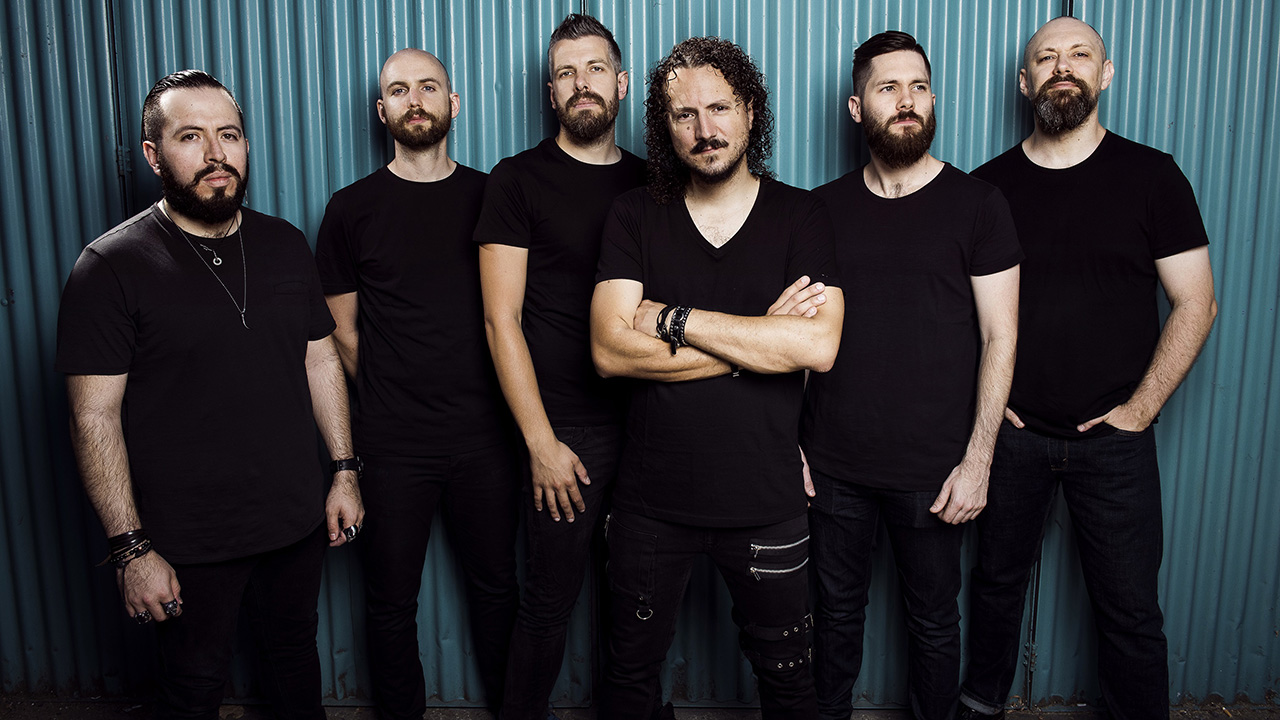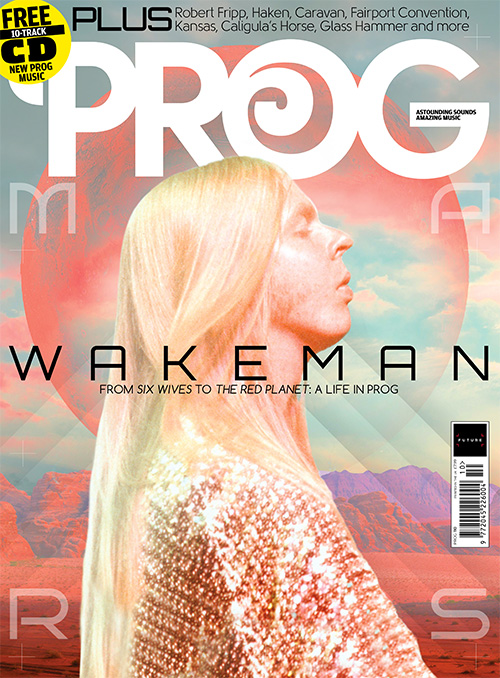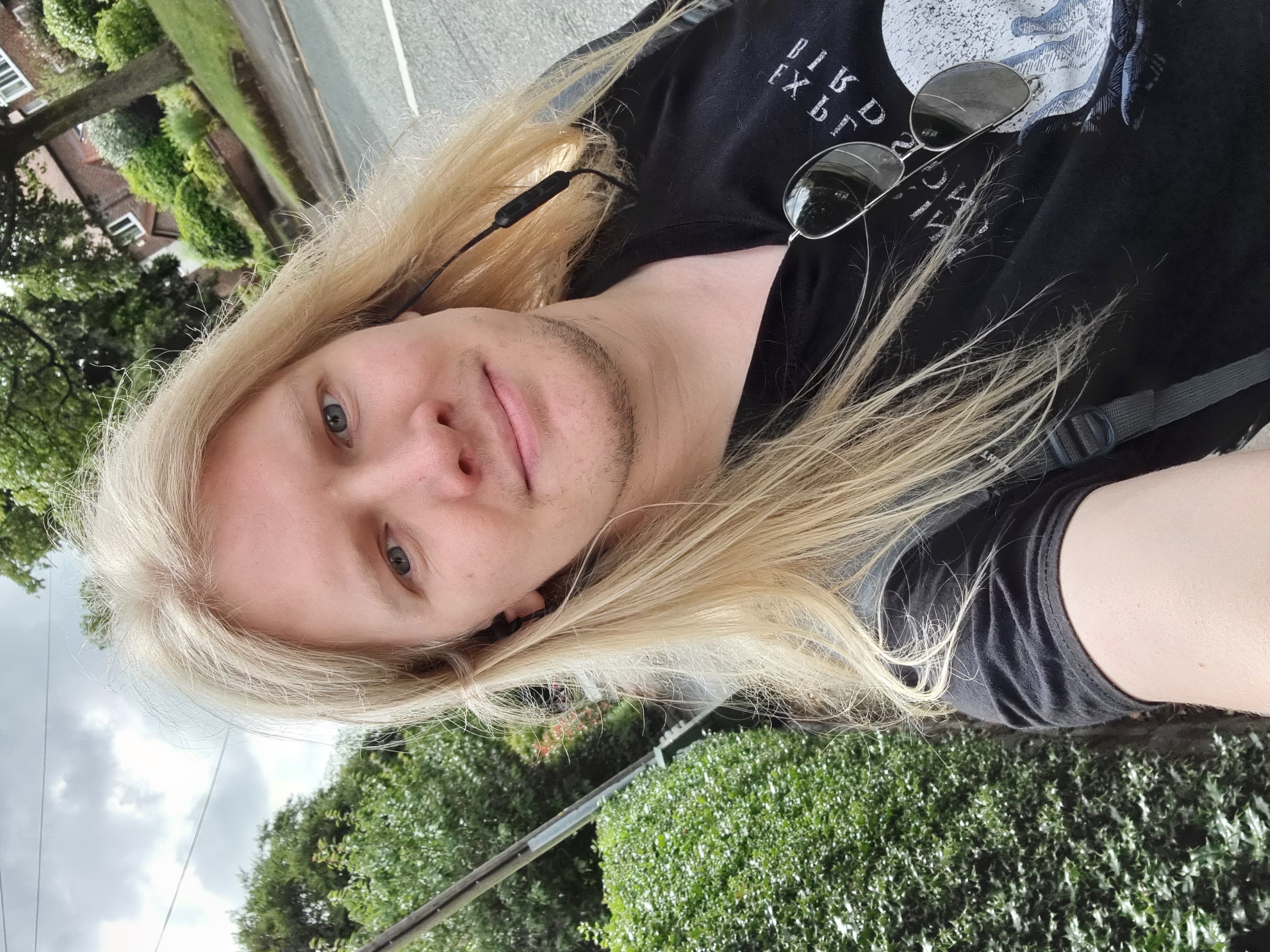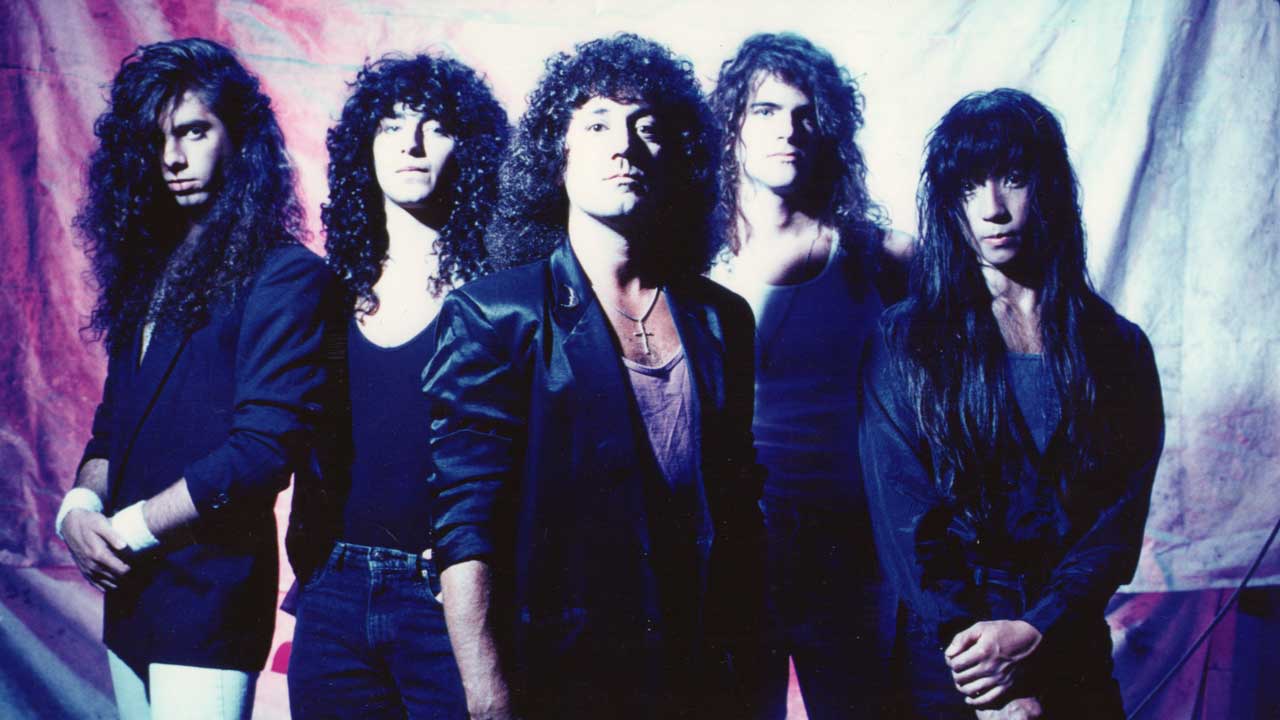“It probably looks like we’re in a great position, but music doesn’t pay all our bills yet. One day we want to be able to play arenas”: When Haken doubled down on ambition with Virus
Secretly the second part of previous album Vector, their 2020 release featured more collaborative writing, more influences, and revealed more details about their Cockroach King character

The Cockroach King made them, and in 2020 it became time to breaking him. Prog catches up with Haken to learn all about their ambitious sixth album, Virus, which concluded the prog metal titans’ first decade.
Haken have never lacked ambition. Ever since 2010’s Aquarius introduced the British progressive metal act to the world, they’ve striven to make every step bigger, bolder and braver than the last. That’s put them at the pinnacle of the contemporary prog metal scene, where they’ve remained for the last 10 years.
Visions quickly followed in late 2011; and The Mountain, released two years later, married their technical virtuosity with raw, emotional lyrics, whosing a vulnerability that made their complex music hugely relatable. It was the record that sent a fast-rising act skyrocketing. They haven’t let up since, producing two more critically acclaimed records in synth-loving Affinity and 2018’s forceful Vector.
Now, as their first decade together draws to a close, the band are unleashing their most ambitiously grandiose statement yet. Virus marks the completion of an arcing narrative that began to unfold seven years ago, which has consumed the band for the past three years.
“Virus is a continuation of our last album, Vector,” reveals guitarist and chief songwriter Richard Henshall. “The narrative comes from one of the tracks on The Mountain called Cockroach King – a song that our fans seem to really like. We wanted to provide a backstory to the protagonist we introduced in that. So on Vector we see the character institutionalised; then, with Virus, his maniacal downfall.”
“The idea for Vector and Virus came about when we were touring with Mike Portnoy in 2017,” explains vocalist Ross Jennings. “It was born from the album five beginning with a V and the album six being VI in Roman numerals. So it was a case of how we could play about with that. It was a way of amusing ourselves and giving us something to write about over the two albums. We needed an anchor, and the Cockroach King character became that anchor.”
He’s keen to add that the two titles have remained unchanged since the nucleus of the concept was conceived three years ago: “We never thought we would be releasing Virus during a pandemic – we don’t want people to think we’re cashing in on it.”
Sign up below to get the latest from Prog, plus exclusive special offers, direct to your inbox!
When Vector was released in 2018, the band dropped no hints that it was half of an audacious two-part project that would represent their greatest challenge to date. Their silence was intentional. “We wanted Vector to be treated in its own right and not solely as part of a pair,” Jennings says. “But I’m very dubious about calling it a double album. Even though Virus is part two, it isn’t in a classic sense – it’s very much its own album. You don’t need to have heard Vector to appreciate Virus. From the beginning, it was very important to us that Virus could stand on its own.
“Lyrically we wanted to honour and celebrate Cockroach King because it was the song that gave us our big break. We became fascinated with exploring that character. It was a self-indulgent but very fun thing for us to do, and we’re really proud of what we’ve achieved with these albums, together and as individual releases.”
Henshall explains: “While we were writing for Vector we were deliberately saving some ideas for Virus. We called back to themes from Vector or Cockroach King and try to use them in new and interesting ways. It was about trying to think of both albums and how they’d play out when people listened to them alongside one another.”
By breathing new life into recurrent themes, Virus plays out like an Easter egg hunt for diehards. With some of Cockroach King’s most outlandish moments so imaginatively revived for the album’s pièce de résistance, the emphatic five-part Messiah Complex, its scope now feels even larger. Sometimes those ideas come back with a pomp and grandiosity; the Gentle Giant-inspired layered vocals of Cockroach King now adorn a grinding djent riff, while other reprises are more subtle.
That’s half of the joy of it – expanding upon one of their signature tracks in such a fashion is dizzying in its ambition, delightful in its execution and compelling in its construction. It’s a move typical of Haken, and it ignites what is arguably their most accomplished record to date – even in the shadow of The Mountain and everything it helped them to achieve.
Songs can quite easily become a little cold and mechanical when the writing is too computer-based
Richard Henshall
“We did speculate whether it was a good idea to be so explicit with some of the references in Messiah Complex,” says Jennings. “But we wanted a grand opus to wrap everything up. It’s the song that goes into the most detail as to who the Cockroach King is – it explores the ideology of a tyrannical government, the narcissism that surrounds it and seeing the rise and fall of the Cockroach King as a political virus. It’s a fictional tale, but there’s also an element of putting a mirror up to the negative world we live in.”
Henshall highlights how Nil By Mouth from Vector became an important piece of this very progressive puzzle. “The original arrangement was around 11 minutes long, but we thought it was a bit too much for what was a very intense instrumental track. So we decided to take one of its final riffs – which was about three minutes long in itself – and save it for Virus. That informed a large part of Messiah Complex, which is my personal favourite on the album, and has to be the most brutal song we’ve ever come up with. It goes on this journey of crazy riffs and really quirky ideas.
“There’s this pretty chilled section on Nil By Mouth with a chordal guitar thing going on which we really liked, so we took that theme and played it over a really heavy part of Messiah Complex. It was fun to bring back different themes and morph them into something new for this record.”
With such a colossal challenge on their hands, Henshall was eager for the record to be a true team effort. “With both albums we’ve been collaborating as a band as much as possible, which, having band members dotted throughout the world, can be quite tricky,” he says. “Normally we all write ideas at home and share those arrangements into our online filesharing space. Someone else will take an idea and develop it further until we have an arrangement we’re happy with.
“This time we were lucky: just before we were due to go into the studio we had a month-long tour with Devin Townsend, which meant we had a lot of time on the bus together to really refine the arrangements. Songs can quite easily become a little cold and mechanical when the writing is too computer-based. It’s very important to take it to some sort of space where we’re all together and bring the ideas to life. We had a makeshift studio in the back of the bus. Sometimes we’d be going in circles for weeks trying to make sense of just one vocal line – but the whole process was always very fun. It felt like a team-building exercise.”
I wouldn’t be surprised if, one day, we wrote an electronic indie album
Ross Jennings
“We really embraced our time together on that tour,” adds Jennings. “Those are my fondest memories of putting this album together. The creative energy that was flying about was incredible. We even scrapped some songs and reworked some ideas from the ground up again. It made them so much better because we could bounce ideas off each other instantly. That process can take a really long time when you’re doing it online. It was a great experience and it really benefitted the record.”
“It brought forward ideas we wouldn’t typically have come up with on our own,” adds Henshall. “We all listen to a huge variety of music. Conner [Green, bass] is a big fan of Justin Vernon of Bon Iver, so the ideas he suggested on the bus offered a very different vocal style to what Ross usually does. It gave us new perspective when we were working on chorus lines and getting those final details down.
“Ray [Hearne, drums] pencilled out some riffs for Messiah Complex, which translated onto guitar really well. They weren’t something a guitarist would typically come up with; so, again, it gave us a different dynamic. Writing on the bus has made for the most eclectic Haken album to date, I think.”
That panoramic array of influences have been blended without convoluting the greater whole. Everything is focused and purposeful. It’s an achievement that typifies both the record’s ambition and Haken’s maturing abilities as songwriters.
Says Henshall: “Ultimately we wanted it to still sound like Haken, so it was about getting the right balance of those ideas, using the right influences at the right moments during the right peaks and troughs. Prosthetic, for instance, is very heavy and intense all the way through – you can really hear those Pantera and Fear Factory influences. Canary Yellow is a lot mellower and channels bands like Radiohead and Elbow. Each influence was used where it was most suited.”
He believes that looking further afield towards non-metal musicians for inspiration has made a dramatic difference. “We’ve all developed as songwriters since Cockroach King, and our influences have changed too, so reworking some of those older themes through those new influences has been very exciting.

“One of my biggest influences nowadays is an Armenian jazz pianist called Tigran Hamasyan, who does all these crazy Meshuggah things on the piano, treating it like
a guitar. I love his approach to rhythm – it’s really revolutionary. Taking themes from our older records and treating them with these new ways of looking at writing has given us some really interesting results. When I’m trying to write a new song, Tigran’s work is one of those constant sources of inspiration; he blows my mind.”
“I’m really proud of our output over the last 10 years,” Jennings says. ”It’s not in our nature to rest on our laurels; we’re very much workaholics. There’s also a sense that we’re still striving to make it. From the outside looking in, we probably look like we’re in a great position, but the reality is that rock’n’roll doesn’t pay all our bills yet. We still have to subsidise our work, so we’re still pushing to make our best album. There’s room for the band to progress and excel – one day we want to be able to play arenas. We just want to keep working towards that.
“I don’t know what’s next for us,” the vocalist concludes, “I’ve really enjoyed writing these metal albums; I don’t think we’ll ever stop writing riff-driven music. But we’re also driven by melody and other styles of music that aren’t prog or metal. I wouldn’t be surprised if, one day, Haken wrote an electronic indie album. We take each album as it comes and we respond to our intuition at the time.”
You can usually find this Prog scribe writing about the heavier side of the genre, chatting to bands for features and news pieces or introducing you to exciting new bands that deserve your attention. Elsewhere, Phil can be found on stage with progressive metallers Prognosis or behind a camera teaching filmmaking skills to young people.
You must confirm your public display name before commenting
Please logout and then login again, you will then be prompted to enter your display name.





